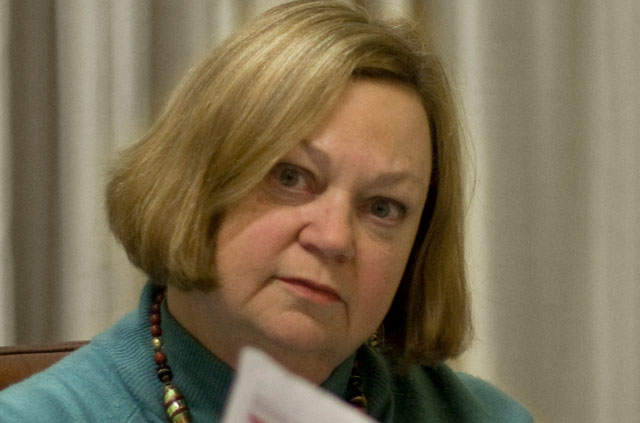
The Universal Service & Access Agency of South Africa (Usaasa) has torn into the Democratic Alliance over “unfortunate and sensational” claims by the party questioning the digital television set-top box tender process the agency has embarked on.
Earlier on Tuesday, DA MP Marian Shinn warned that the party was considering legal action over the multibillion-rand Usaasa tender for the supply of as many as 5m set-top boxes for digital terrestrial television. Government plans to subsidise the cost of these boxes so that poorer households will continue receiving terrestrial broadcasts.
In a statement, Shinn said the DA was “concerned that in a rushed attempt to partially meet the digital migration deadline of 17 June 2015 by delivering some set-top boxes this year, proper processes and evaluation may be circumvented and sidelined, rendering the tender process unlawful”.
In a subsequent interview with TechCentral, Usaasa spokesman Khulekani Ntshangase hit back at Shinn over her remarks, saying the agency was following a legitimate legal process.
“We have issued tenders and we are working with the national treasury on this process,” Ntshangase said. “All of our processes are above board. We are not worried about the DA.
“Our position will prevail in court. We haven’t done anything wrong,” he said. “People can say whatever they want. We will continue to do our work.”
Usaasa late on Tuesday issued a statement through newswires in which it lambasted the DA for its remarks on the tender process.
“This unfortunate statement [by the DA] did not come as a surprise as we are aware that there are prophets of doom — within and outside government — that are hell-bent at disrupting the government service delivery programme,” the agency said. “These people are so desperate to the extent of manufacturing baseless allegations.”
Usaasa said that on 19 September 2014, it presented its state of readiness on the implementation of the broadcasting digital migration project to parliament’s portfolio committee on telecommunications & postal services.
The presentation included information on subsidy qualifying criteria; the number of people to be subsidised; the distribution model to be used; the tendering process; and available funds.
“Usaasa informed committee members that, because of the magnitude of project and the interest that a bid of this nature would attract, it resolved to source the services of a four-tier consulting company to evaluate the tender so to avoid unfounded innuendos as demonstrated by the DA’s allegations,” it said.
“The agency further informed the committee that in the interest of time it thought it was prudent to initiate the tender process calling for quotations for both encryption and non-encryption set-top-boxes.
“Usaasa was mindful of the fact that a policy decision had not been concluded, but was concerned about its ability to meet the deadline of 17 June 2015 as set by the International Telecommunication Union.
“In consultation with the executive authority, Usaasa issued an invitation to tender that sought quotations for both control and non-control set-top boxes. This was done to ensure that by the time a policy directive is finalised by Cabinet, time-consuming administrative processes would also been concluded.”

The agency said it published the tender on 21 November 2014 in accordance with legislation. The tender was also advertised in a national newspaper and was not done “quietly” as alleged by the DA.
In her statement, Shinn said the DA was questioning the validity of the process for several reasons.
Firstly, she said, the broadcasting digital migration policy had not been approved by cabinet.
Secondly, the set-top box tender document called for two prices: for boxes with set-top box control and for those without.
In addition, the direct-to-home technology standards had not been approved.
The “low-key manner” in which the tender process was conducted has also raised concerns for the DA. Shinn said it “sidelined many companies that would have submitted bids, casting doubt over whether the process will be fairly adjudicated”.
“Most of the 145 companies that attended the bidders’ briefing meeting on 2 December 2014 were invited. Bidders were briefed on supply of set-top boxes, before fundamental aspects of their functioning had been decided and finalised.”
Full financing for the subsidised boxes has also not been secured, Shinn claimed. — © 2015 NewsCentral Media




